Hongguang Shi
Long Short-Term Planning for Conversational Recommendation Systems
Oct 23, 2023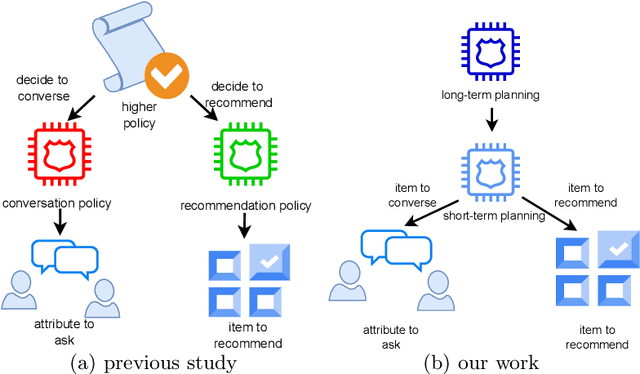

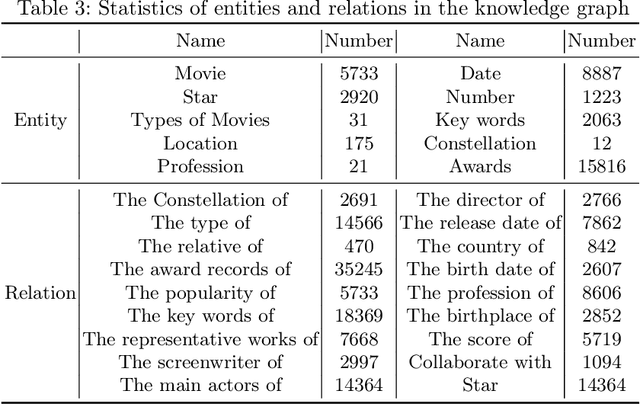
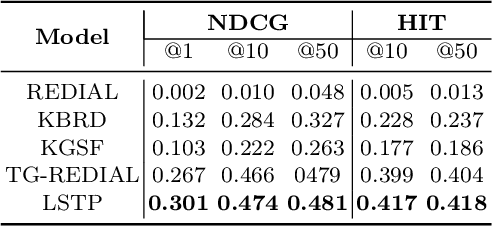
Abstract:In Conversational Recommendation Systems (CRS), the central question is how the conversational agent can naturally ask for user preferences and provide suitable recommendations. Existing works mainly follow the hierarchical architecture, where a higher policy decides whether to invoke the conversation module (to ask questions) or the recommendation module (to make recommendations). This architecture prevents these two components from fully interacting with each other. In contrast, this paper proposes a novel architecture, the long short-term feedback architecture, to connect these two essential components in CRS. Specifically, the recommendation predicts the long-term recommendation target based on the conversational context and the user history. Driven by the targeted recommendation, the conversational model predicts the next topic or attribute to verify if the user preference matches the target. The balance feedback loop continues until the short-term planner output matches the long-term planner output, that is when the system should make the recommendation.
Revisiting the Role of Similarity and Dissimilarity in Best Counter Argument Retrieval
Apr 19, 2023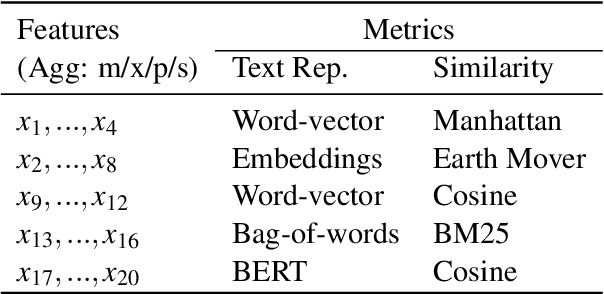
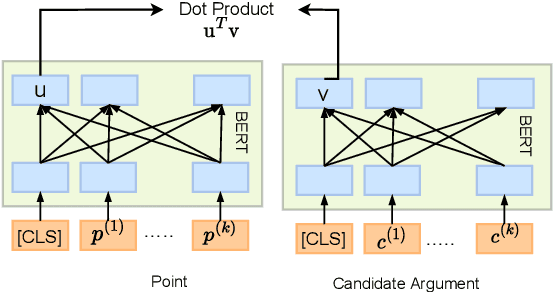
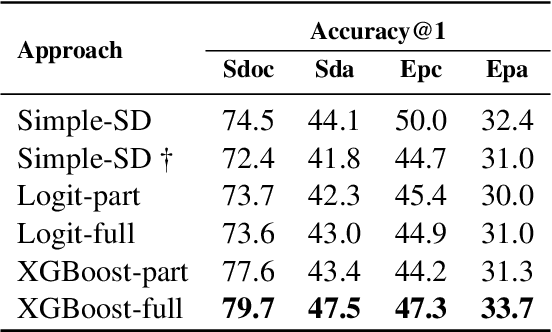
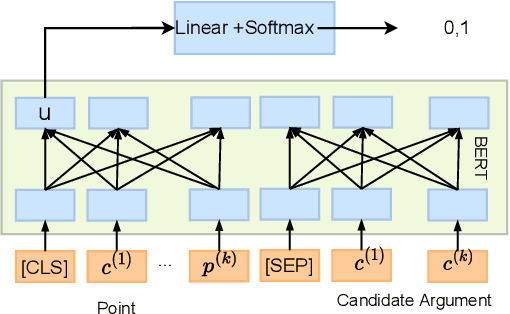
Abstract:This paper studies the task of best counter-argument retrieval given an input argument. Following the definition that the best counter-argument addresses the same aspects as the input argument while having the opposite stance, we aim to develop an efficient and effective model for scoring counter-arguments based on similarity and dissimilarity metrics. We first conduct an experimental study on the effectiveness of available scoring methods, including traditional Learning-To-Rank (LTR) and recent neural scoring models. We then propose Bipolar-encoder, a novel BERT-based model to learn an optimal representation for simultaneous similarity and dissimilarity. Experimental results show that our proposed method can achieve the accuracy@1 of 49.04\%, which significantly outperforms other baselines by a large margin. When combined with an appropriate caching technique, Bipolar-encoder is comparably efficient at prediction time.
 Add to Chrome
Add to Chrome Add to Firefox
Add to Firefox Add to Edge
Add to Edge